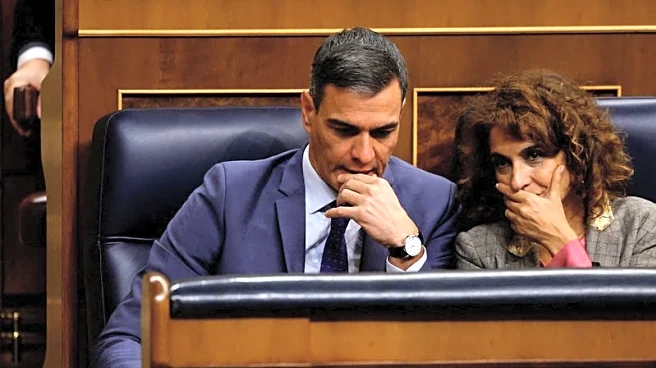(Reuters) -Spain's lower house rejected the government's proposed 2026 spending plan on Thursday, providing a setback to the government's attempts to restore a normal budget timetable.
The plan set a ceiling
of 216.2 billion euros ($250.3 billion) for government spending, excluding debt-related costs, an 8.5% increase from last year.
It failed to secure backing from the conservative People's Party (PP), far-right Vox, Catalan separatists Junts and hard-left Podemos.
Lawmakers issued 178 votes against the plan versus 164 in favour, while five abstained.
Spain has gone two consecutive years without presenting a new state budget, rolling over the 2023 accounts into both 2024 and 2025, after the political parties needed to reach a majority said they would not back the bill.
The failure to secure approval for the spending ceiling for 2026 makes it even harder for the executive to break the gridlock and resume a normal budget calendar.
The government's fiscal roadmap paired higher spending with its target of reducing the deficit to 2.1% of GDP in 2026.
Budget Minister Maria Jesus Montero said the executive will move ahead with the 2026 budget, submitting it to parliament in the first months of next year, which could allow another vote on the fiscal framework later in the winter.
The Spanish government had argued that a new budget would have meant more money for regions and municipalities.
"The PP must explain its opposition to needed funds for regions," Montero added.
($1 = 0.8637 euros)
(Reporting by Jesus Calero; Editing by David Latona and Sharon Singleton)











